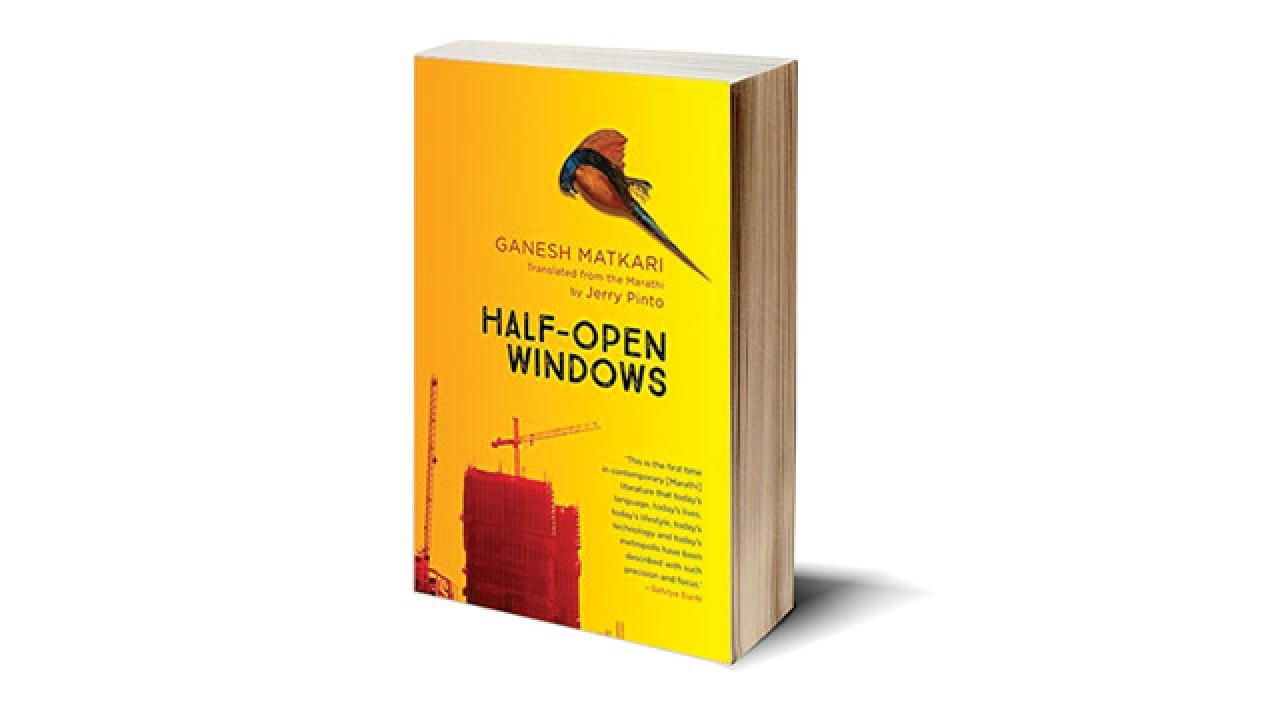
Book: Half-Open Windows
Author: Ganesh Matkari
Translated by Jerry Pinto
Publisher: Speaking Tiger
208 pages
Rs 299
Bombay, or Mumbai if you will, has been the muse to many a novelist. Add to the list architect, filmmaker and film critic Ganesh Matkari whose Khidkya Ardhya Ughadya has been translated from Marathi by Sahitya Akademi Award recipient Jerry Pinto. Half-Open Windows isn't a romantic musing or a nostalgia-inducing account and definitely not an expose of the city's seedy underbelly. Yet, the reader gets glimpses of all these through the pages.
The novel revolves around the firm of SNA Architects, whose rising star nosedives when a social activist blows the lid off of its much talked-about project on a prime, south Mumbai plot (inspired, perhaps, by the Adarsh Housing scam). But there are few and subtle hints of the impending real estate scandal. This is partly because the narrative is constantly changing — each chapter is told from the point of view of a new character. And partly because these characters are enmeshed in a sweeping landscape of schools, the solitary existence in a busy metro, the trials of cross-city commutes, managing people while navigating personal minefields, the complex web of politics-urban planning-slum housing, and the gradual erosion of principles at the altar of greed and ambition.
Despite the wide spectrum, Half-Open Windows is a pacey read, one that is peppered with Bambaiyya phrases and words such as 'Arre baap re', 'She thinks you are up to some goondagiri at school', 'How much timepass are we going to do', 'You've got some presentation, na?'
Matkari's assembly of characters is equally eclectic. Sample this: Sushrut is a stay-at-home live-in partner to Sanika, one of the partners at SNA Architects; Ramakant (or Ramya) is a cigarette-puffing genius who is oblivious to people and things around him; Joshi Kaku is a widow who lives with her cat in a suburban Mumbai high-rise; Swarupa and Permendra start out as idealistic activists but end up on polar opposites — one a politician and the other a whistleblower; and Anant (Antya, as Sanika calls him), a schmoozing networker who fixes deals for SNA but is incapable of dealing with imperfect situations, including the troubles faced by his school-going son. The rich cast has ample potential for deeper exploration, so it is a tad disappointing to arrive at the end of the novel with more questions and little closure.
Yet, Half-Open Windows is a refreshingly uncommon tale set in Mumbai. It is contemporary fiction that examines the city from the perspective of architecture and the morass it is in. Like one of its protagonists states: A city that seemed to believe that the Queen's Necklace was enough past for it, a city sacrificing its beauty at the dirty altars of money. I thought, someone ought to write a poem on who killed the city of Mumbai.